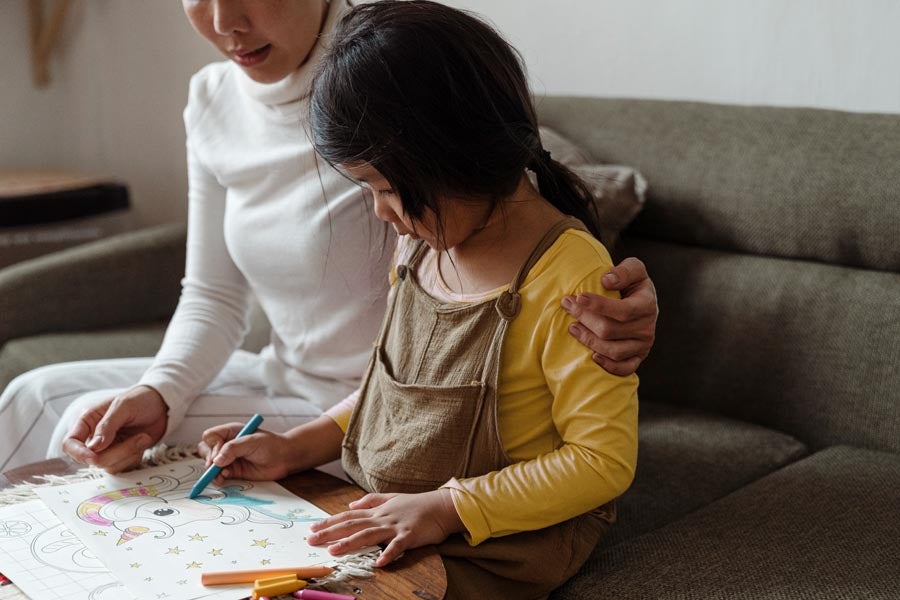Talking to kids about cancer
Having difficult but essential conversations

Explaining a cancer diagnosis to children, teenagers, or young adults can feel difficult and overwhelming. However, talking sensitively and honestly about cancer may be reassuring during a time of uncertainty and change. Giving children the chance to ask about cancer and express their feelings will help them.
Download Cancer Council's Talking to kids about cancer booklet:
What and how much you tell children will depend on how old they are and how much they can understand.
The resources below offer suggestions of how to talk to children about each stage, from diagnosis to life after cancer. Children of different ages will respond differently and seek different types of information.
These booklets offer age-appropriate suggestions along with possible reactions to expect. Also included are stories and quotes from families who have faced similar situations. Although the booklet focuses on when a parent has cancer, much of the discussion will be relevant for anyone who needs to explain a diagnosis of cancer to kids, teenagers, or young adults.
Booklet contents:
Cancer conversations
Download the PDF here.
- Reasons for including children in discussions about cancer
- How children might react at different ages
- Different ways you can support them
Download PDF
Talking about the diagnosis
Download the PDF here.
- Processing a cancer diagnosis yourself
- Sharing the news with children, teenagers, and young adults
- When a child has cancer
- Words you can use
- Typical questions and possible answers
- Involving others
Download PDF
Talking about treatment
Download the PDF here.
- Ways to understand and discuss cancer treatment
- How cancer may affect the person with cancer and the entire family
- Managing emotions
- Tips for supporting the family and maintaining routines
Download PDF
After treatment
Download the PDF here.
- How adults and children may react when cancer treatment is over
- Continuing open communication with children, teenagers, and young adults
- Responding to children's expectations
- Re-establishing family routines
Download PDF
When cancer won't go away
Download the PDF here.
- How adults and children may respond if cancer advances
- Ways to talk about ongoing cancer and the possibility of death
- Words you can use
- Making the most of the time left
- Resources to help bereaved children
Download PDF
Further support and information
Download the PDF here.
- How to find professional help
- Contact details for support organisations
- Useful websites
- Recommended reading for children and adults
- Glossary of cancer words for younger and older children
- References
Download PDF
Further resources
You may also like to view The Women’s Hospital video resource, Enhancing Parenting in Cancer (EPIC). The individual chapters can be viewed chronologically or separately according to your preference.
Make a book
This example, by Tayla and her Grandma:
Find out more about children, teens, and young adult cancers
